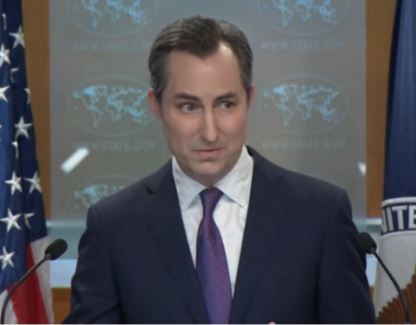WASHINGTON – The United States was unable to respond to an Iranian request for assistance after a helicopter crash over the weekend that resulted in the death of President Ebrahim Raisi.
Washington conveyed its condolences for the tragic incident.
This unusual request from Iran, a nation that considers the United States and Israel as its primary adversaries, was revealed by the State Department during a press briefing.
“We received a request for assistance from the Iranian government. We indicated our willingness to help, as we would with any foreign government’s request in such situations,” stated spokesperson Matthew Miller. “However, due to logistical reasons, we were ultimately unable to provide that assistance,” Miller added, without providing further details.
The wreckage of the helicopter, which crashed on Sunday carrying Raisi, Foreign Minister Hossein Amirabdollahian, and six other individuals, was discovered early Monday morning after an overnight search amidst blizzard conditions.
Iran has not yet released an official explanation for the crash of the U.S.-made Bell 212 helicopter in the mountainous region near the Azerbaijan border.
When questioned about the potential for Iran to blame the U.S., Defense Secretary Lloyd Austin clarified, “The United States had no involvement in the crash.” He also refrained from speculating on the cause.
This incident occurs during a period of increasing unrest in Iran, driven by political, social, and economic challenges. The country’s leadership is also under international scrutiny for its contentious nuclear program and strengthening military ties with Russia amid the Ukraine conflict.
Despite the situation, Austin downplayed any immediate security threats in the Middle East, stating, “I don’t see any broader, regional security impact at this point.”
According to Iran’s constitution, a new presidential election must be conducted within 50 days. Suzanne Maloney, an expert on Iran at the Brookings Institution, suggested that Iran’s leadership and security forces would likely aim to avoid showing any signs of vulnerability during this transition period.
“As a result, I expect a cautious and reactive Iran, which might become more dangerous if it feels threatened,” Maloney added.










